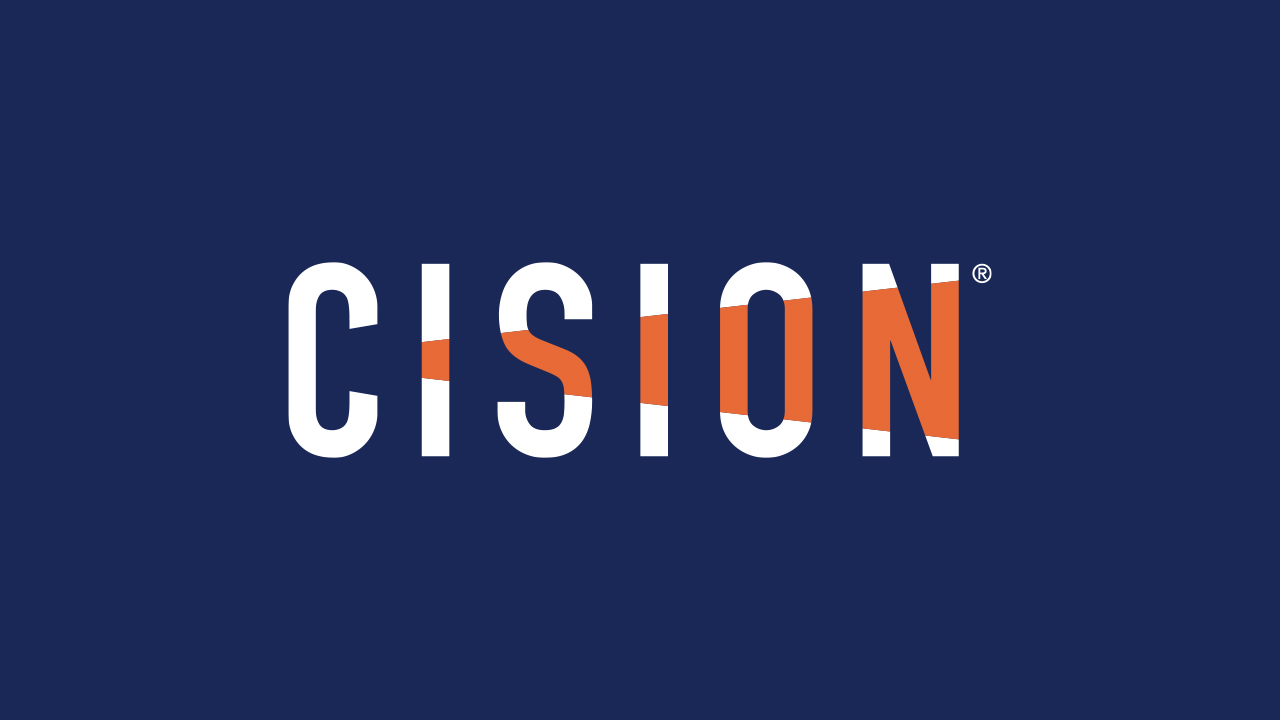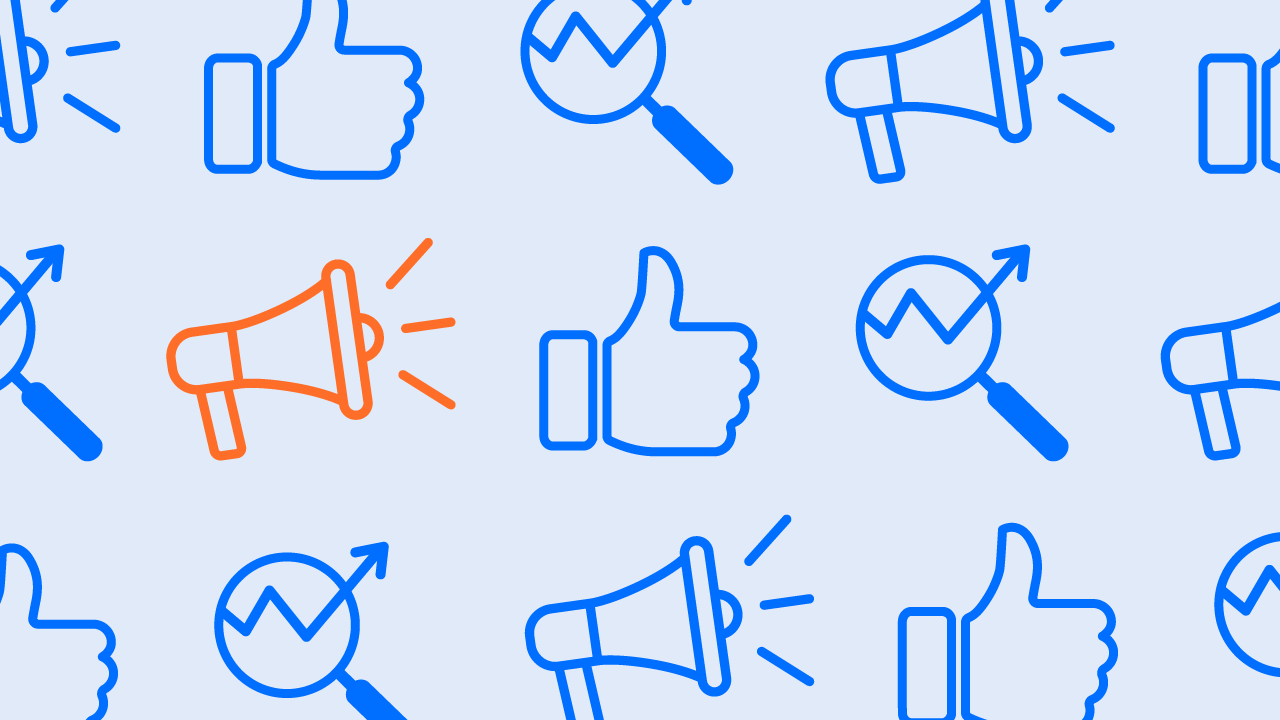Your brand's reputation is constantly being shaped by the conversations happening across major social media platforms.
Positive mentions can boost your reach and attract new fans, while complaints can quickly spiral into a full-blown crisis – if left unchecked. With the right social media monitoring tools, you can catch every whisper, shout-out, and inside joke about your brand. Social media monitoring is your sixth sense. It helps you detect potential issues before they spiral, or spot emerging trends and opportunities before your competitors notice them.
So, there’s no doubt that social media monitoring is worth the time, money, and effort, but what tool should you use to bolster your brand and outwit your competitors?
Well, we’ve got the answers. Just keep reading…
Why is Social Media Monitoring Important?
You wouldn't launch into a sales pitch without first understanding your customer's needs (well, maybe some salespeople would, but I doubt they're making much commish 🫰💰)
Social media monitoring helps you to listen and understand what your audience thinks before you engage.
The benefits of social media monitoring:
Stay on top of your brand's online reputation
Spot trends, customer gripes, and opportunities
Gather feedback to improve your product or service
Detect issues before they snowball
Find brand advocates, influencers, and UGC to repurpose in marketing campaigns
Monitor your competitors' strategies and campaigns
Top 10 Social Media Monitoring Tools
1. CisionOne Social: The Social Monitoring Tool for Comms Teams
Used by: Communications teams, PR professionals, social media managers
Ideal for: Enterprise brands, organizations with dedicated communications resources
Pros: Deep social listening across major platforms, seamless integration with media monitoring, customizable dashboards and reporting
Cons: Pricing can be high for smaller businesses
CisionOne Social is a social media monitoring and management tool integrated into the CisionOne suite. Users can schedule posts, publish content, and engage audiences across Facebook, X, LinkedIn, and Instagram, and measure their performance across 13 social metrics. CisionSocial also comes with fully customizable reporting, the ability to monitor unlimited brand mention streams, and even offers mobile alerts so users can get wind of any negative mentions before they take root. CisionOne Social is integrated into CisionOne's extensive media database with over 850,000 journalist profiles, validated by a global research team across 196 countries and 69 languages. As a result, users can enrich their social media strategies with influencer identification and outreach, all from within the same platform.
Example of how it's used: The communications team at a major consumer brand can use CisionOne Social to monitor conversations across X, Facebook, and Instagram – related to their products, branded campaigns, and relevant industry topics. They can analyze social data alongside traditional earned media coverage and build customizable dashboards to analyze metrics like share of voice, sentiment, and AI-informed risk scores. With scheduled publishing and team collaboration tools, they can then engage audiences directly from the platform to help shape narratives and protect the brand's reputation.
2. Hootsuite: The All-in-One Social Media Command Center
Used by: Social media managers, digital marketers, agencies
Ideal for: Small up to enterprise
Pros: User-friendly, comprehensive platform, integrates with multiple social networks
Cons: Limited free plan, can be pricey for small businesses
Hootsuite is a popular social media management platform that offers great monitoring capabilities. Set up custom streams to track mentions, hashtags, keywords, and more across platforms like Twitter, Facebook, Instagram, and LinkedIn. Collaborate with your team, respond to mentions, and analyze performance – all from a single dashboard.
Example of how it’s used: A social media manager for a clothing brand can set up streams in Hootsuite to monitor mentions of their brand name, product lines, branded hashtags, and relevant industry keywords. They can quickly identify and respond to customer inquiries, feedback, and mentions from influencers.
3. Brandwatch: The Powerhouse for Enterprise Listening
Commonly used by: Enterprise brands, market research teams, social intelligence analysts
Ideal for: Large organizations with dedicated social listening resources
Pros: Comprehensive data, advanced analytics, custom dashboards
Cons: For more advanced analysts
Brandwatch Consumer Research is an enterprise-level social listening platform that taps into over 100 million online sources across over 1.4 trillion posts, including social media, blogs, forums, and news sites. With its customizable query builder, sentiment analysis, and demographic insights, it gives users deep intel into their audiences and market landscape.
Example of how it’s used: A market research analyst at a consumer electronics company might use Brandwatch's query builder to track conversations around their latest product launch. They could analyze sentiment, identify key influencers, and gather insights on customer pain points and feature requests, informing future product development decisions.
4. Mention: The One for Integrated Social Media Monitoring
Commonly used by: Social media managers, digital marketers
Ideal for: Brands with a global presence or multiple languages
Pros: Team collaboration features, web monitoring
Cons: Limited for social media monitoring
Mention’s social media monitoring tool tracks brand mentions across various online sources, including social networks, news sites, forums, and blogs. Its ability to plug into Slack makes it ideal for brands wanting to build their social media tracking into their daily workflow. Generate reports, share alerts, and assign tasks to your team for efficient collaboration.
Example of how it’s used: A digital marketer can use Mention to track brand mentions without leaving their Slack environment. They can spot instant engagement opportunities, understand audience perception, and discuss negative mentions with colleagues through their workflow management tools.
5. Agorapulse: The Unified Social Inbox
Commonly used by: Social media managers, customer service teams, agencies
Ideal for: Brands with a strong focus on customer engagement and community management
Pros: Unified social inbox, queue feature for scheduling content, client collaboration
Cons: Limited monitoring capabilities compared to dedicated tools
Agorapulse is a social media management platform that's built for customer engagement and community management. Its unified social inbox consolidates all mentions and messages in one place, enabling you to collaborate with your team to devise the best response. You can also label, bookmark, and assign posts to your team members, and schedule in future content using the shared calendar.
Example of how it’s used: A customer service team for an e-commerce brand could use Agorapulse's unified social inbox to monitor and respond to customer inquiries, complaints, and product reviews across multiple social platforms. They can collaborate and assign tasks, ensuring no customer interaction falls through the cracks.
6. Keyhole: The Hashtag and Keyword Tracker
Commonly used by: Social media managers, digital marketers, event organizers
Ideal for: Brands running campaigns or monitoring industry trends
Pros: Real-time tracking of keywords and hashtags, influencer identification
Cons: Limited to tracking hashtags and keywords, no sentiment analysis
Keyhole is a specialized social media monitoring tool designed for tracking keywords and hashtags in real-time. It's particularly useful for brands running campaigns, monitoring events, or keeping an eye on industry trends. Keyhole provides a dashboard displaying all mentions, engagement metrics, and identifies influencers associated with your tracked terms.
Example of how it’s used: A digital marketer for a sports apparel brand might use Keyhole to track campaign hashtags and keywords during a major sporting event. They could identify top influencers and high-performing content, informing their real-time content strategy and influencer partnerships.
7. Sprout Social: The Comprehensive Customer Service Suite
Commonly used by: Social media managers, digital marketers, agencies
Ideal for: Brands prioritizing customer service across multiple platforms
Pros: Unified platform for publishing, engagement, and analytics
Cons: Limited tracking capabilities compared to dedicated social monitoring tools
Sprout Social's comprehensive social media management platform lets users publish, engage, and analyze social performance in a single suite. While not solely focused on monitoring, it offers useful tools for tracking mentions, comments, and keywords across major social networks like Facebook, Twitter, Instagram, and LinkedIn. Users love Sprout's smart inbox, which allows them to collaborate with their team and respond instantly to interactions.
Example of how it’s used: A social media manager for a restaurant chain can use Sprout Social's monitoring capabilities to track reviews across multiple social platforms. They can quickly respond to customer feedback, identify potential issues, and share positive feedback with local teams for motivation and training purposes.
8. Awario: The Smart Solution for Small Businesses
Commonly used by: Small business owners, solopreneurs, digital marketers
Ideal for: Small businesses with limited resources
Pros: Affordable pricing, daily email alerts
Cons: Limited features compared to enterprise-level tools
Awario is a brand monitoring tool tailored for small businesses. It analyzes social mentions, provides sentiment analysis, and offers features like daily email alerts. Awario is praised for its smart and affordable solution, making it accessible for businesses with limited resources. Users also love its speedy, birds-eye-view reporting.
Example of how it’s used: A small business owner selling handmade jewelry might use Awario's affordable monitoring solution to track mentions of their brand, product names, and relevant hashtags.They could quickly respond to customer inquiries, identify potential sales opportunities, and gather feedback for product improvements.
9. YouScan: The Visual Content Analysis Expert
Commonly used by: Social media managers, digital marketers, brand managers
Ideal for: Brands with a strong visual identity or focus on user-generated content
Pros: Analyzes visual content (images, videos) for brand mentions and logos
Cons: Limited to visual content analysis, no text-based monitoring
YouScan's social monitoring tool is a little different from the others on this list in that it specializes in visual content analysis. Using AI, it allows users to search for brand logos, objects, and people in images and videos on social media. This makes it an ideal choice for brands interested in tracking UGC and influencer sponsorship content. Be aware though that other social media platforms (like Brandwatch) also offer visual social media performance data – so if you're after a solution that offers both text and visual tracking, it might be better to consider those options!
Example of how it’s used: A brand manager for a luxury cosmetics company can use YouScan's visual content analysis capabilities to monitor user-generated content featuring their products. They can spot future partnership opportunities, curate user content for marketing campaigns, and measure the impact of influencer partnerships.
10. Zoho Social: The Simple Social Media Hub
Commonly used by: Social media teams, agencies, marketers
Ideal for: Small brands managing multiple social media accounts or clients
Pros: Easy UI, Collaboration features
Cons: Limited tracking capabilities compared to dedicated social media monitoring tools
Users love Zoho Social for its intuitive interface and ability to consolidate their social media data and activity from different platforms, into one simple dashboard – that’s according to the latest reviews on G2. The drag and drop calendar makes social media planning easy for users, while also giving them the ability to select the best times to post based on their followers’ active hours.
Example of how it’s used: A digital agency managing multiple client accounts can use Zoho Social's collaboration features to monitor brand mentions, engage with audiences, and measure performance across various social platforms. They can assign roles, schedule content, and generate custom reports for each client.
Conclusion
Social media monitoring platforms are essential for businesses to stay informed, engage with their audience, and gather insights. With the right tools in place, brands can boost their brand equity and hit their marketing and business objectives.








